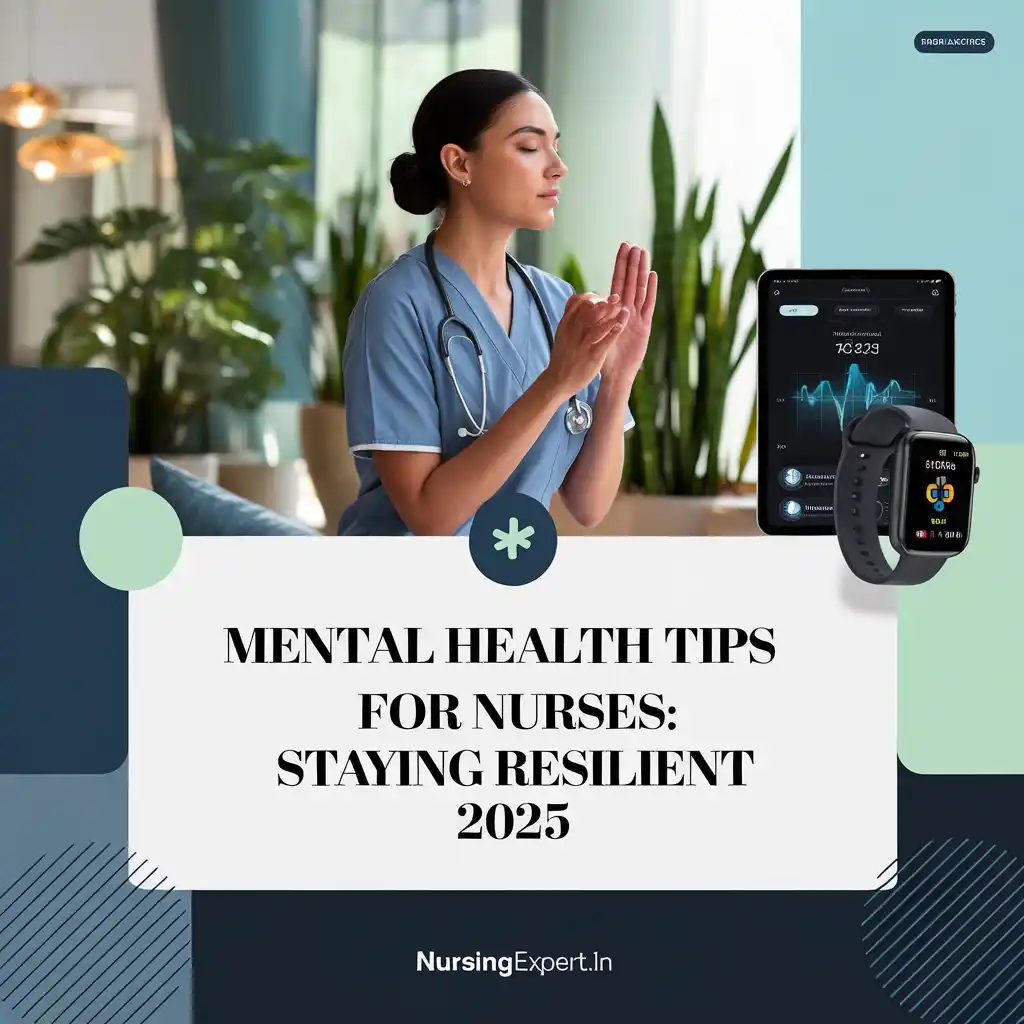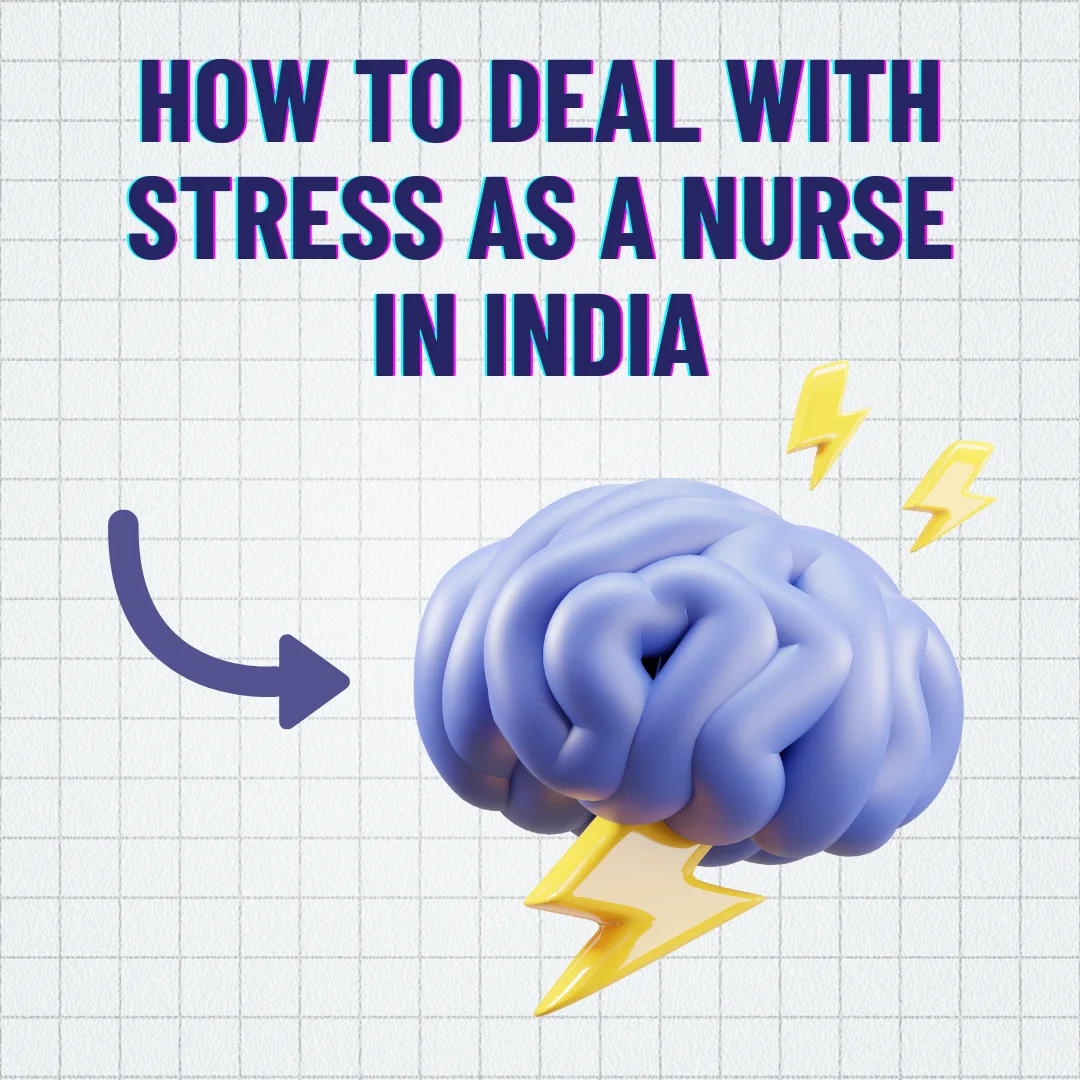Nursing is an incredibly rewarding yet demanding profession. In today’s fast-paced healthcare environment, the stress and emotional toll on nurses can be significant. Maintaining robust mental health and resilience is essential—not only for nurses’ own well-being but also to ensure they can deliver high-quality, compassionate care to patients. In 2025, as the landscape of healthcare evolves with new technologies and increasing patient demands, adopting effective mental health strategies is more important than ever.
Thank you for reading this post, don't forget to subscribe!
This article explores practical mental health tips and strategies for nurses to stay resilient, including self-care practices, digital tools, mindfulness techniques, and the power of interdisciplinary support. These evidence-based practices, combined with personal reflection and professional development, help nurses navigate challenges, manage stress, and sustain long-term well-being.
Introduction
Nurses face high levels of stress due to long shifts, emotional challenges, and the ongoing demands of patient care. Over time, chronic stress can lead to burnout, decreased job satisfaction, and poorer patient outcomes. In 2025, promoting mental health and resilience among nurses is critical, as it directly impacts the quality of care and overall healthcare system performance.


Patient care benefits when nurses are at their best—not only physically but also emotionally and mentally. By incorporating a range of self-care techniques and leveraging modern technology, nurses can build resilience, manage stress, and maintain a balanced approach to work and life. This article covers a spectrum of strategies that can be implemented individually or as part of a team, ensuring that mental well-being remains a top priority in nursing practice.
Understanding the Importance of Mental Health for Nurses
a. The Impact of Workplace Stress
- High Workloads and Long Shifts: Extended hours and heavy patient loads can contribute to chronic stress and fatigue.
- Emotional Burden: Frequently dealing with illness, trauma, and patient loss can result in emotional exhaustion.
- Interpersonal Challenges: Handling conflicts, difficult interactions, and rapid decision-making can strain mental health.
- Systemic Pressures: Organizational issues, resource limitations, and administrative burdens often add to the stress levels.
b. Benefits of Maintaining Strong Mental Health
- Enhanced Patient Care: Nurses who are mentally resilient are better able to provide compassionate, focused care.
- Reduced Burnout: Prioritizing mental health reduces the risk of burnout, leading to increased job satisfaction and retention.
- Improved Physical Health: Managing stress effectively can lower the risk of chronic diseases and improve overall health.
- Positive Work Environment: When nurses prioritize their well-being, they foster a supportive workplace culture that benefits the entire healthcare team.
Practical Mental Health Tips and Strategies for Nurses
a. Self-Care Practices
i. Establish a Routine for Self-Care
- Regular Exercise: Incorporate physical activity into your daily routine. Even short walks or stretching exercises can help alleviate stress.
- Balanced Nutrition: Maintain a healthy diet rich in fruits, vegetables, lean proteins, and whole grains. Proper nutrition fuels your body and supports mental clarity.
- Adequate Sleep: Prioritize sleep to ensure your mind and body have time to recover. Establish a bedtime routine and create a sleep-conducive environment.
ii. Engage in Mindfulness and Relaxation Techniques
- Mindfulness Meditation: Regular meditation can help you stay present and reduce anxiety. Even a few minutes a day can make a significant difference.
- Deep Breathing Exercises: Practice deep, controlled breathing to help calm the nervous system during high-stress moments.
- Yoga and Stretching: These activities not only improve physical flexibility but also promote mental well-being by reducing tension and stress.
b. Leveraging Technology for Mental Health
i. Digital Mental Health Tools
- Mobile Apps: Use mental health apps like Headspace, Calm, or Insight Timer for guided meditations and stress-relief exercises.
- Wearable Devices: Track your physical activity, sleep patterns, and stress levels with wearable technology to understand how your body responds to stress.
- Telehealth Services: Access virtual counseling or therapy sessions if you need additional support or want to speak with a mental health professional.
ii. Online Communities and Support Networks
- Professional Forums: Join online groups and forums for nurses where you can share experiences, seek advice, and find a sense of camaraderie.
- Social Media Groups: Engage with communities on platforms like Facebook or LinkedIn that focus on nursing mental health and resilience.
- Virtual Support Groups: Participate in telehealth-supported peer support sessions to connect with colleagues facing similar challenges.
c. Professional Development and Continuous Learning
i. Training and Workshops
- Mental Health First Aid: Attend workshops and training sessions on mental health first aid to better support yourself and your colleagues.
- Stress Management Seminars: Participate in seminars focused on techniques for managing stress and building resilience.
- Mindfulness-Based Programs: Enroll in programs that emphasize mindfulness and emotional self-regulation techniques.
ii. Reflective Practice and Peer Mentorship
- Journaling: Maintain a reflective journal to process daily experiences, recognize stressors, and celebrate small victories.
- Peer Support: Cultivate a mentorship network where experienced nurses can offer guidance and emotional support.
- Debriefing Sessions: Regularly participate in debriefing sessions after challenging shifts to share experiences and collectively discuss coping strategies.
d. Fostering a Supportive Work Environment
i. Organizational Initiatives
- Promote a Culture of Well-Being: Advocate for policies that prioritize mental health, such as reasonable shift lengths, break times, and access to mental health resources.
- Create Safe Spaces: Establish designated areas within the workplace where nurses can take a short break, practice relaxation techniques, or simply decompress.
- Leadership Support: Encourage leaders to model self-care behaviors and support staff in managing workplace stress.
ii. Effective Communication and Teamwork
- Regular Check-Ins: Encourage management to conduct routine check-ins with staff to discuss well-being and identify areas for improvement.
- Conflict Resolution Mechanisms: Implement clear protocols for resolving workplace conflicts and addressing interpersonal issues.
- Team-Building Activities: Organize activities outside of work that help strengthen relationships and build a supportive community among staff.
Future Trends in Nurse Mental Health and Resilience
a. Advanced Digital Health Integration
- AI-Driven Insights: Future digital platforms may offer personalized mental health recommendations based on real-time data analysis.
- Virtual Reality (VR) Training: VR simulations could be used to train nurses in stress management techniques, providing immersive, interactive experiences to build resilience.
- Enhanced Telehealth Support: As telehealth technology evolves, virtual mental health services will become more accessible and tailored to healthcare professionals’ needs.
b. Broader Organizational Focus on Employee Well-Being
- Wellness Programs: Healthcare organizations are expected to invest more in comprehensive wellness programs that encompass mental, physical, and emotional health.
- Policy Reforms: Ongoing policy changes may mandate mental health support and stress management resources as integral parts of employee benefits.
- Global Collaboration: Increased international collaboration will allow for sharing of best practices and innovative approaches to supporting nurse well-being.
c. Integration of Interdisciplinary Support
- Collaborative Care Models: The future will likely see more structured interprofessional support systems that integrate mental health professionals, coaches, and peer mentors within nursing teams.
- Holistic Health Approaches: Holistic practices, including nutrition, physical fitness, and mindfulness, will be more systematically integrated into routine care and professional development for nurses.
Frequently Asked Questions (FAQs)
Q1: What is emotional intelligence, and why is it important for nurses?
A: Emotional intelligence is the ability to understand and manage one’s own emotions and the emotions of others. In nursing, EI is important for improving patient care, managing stress, and fostering effective communication with colleagues and patients.
Q2: What are some practical self-care strategies for nurses?
A: Nurses can prioritize self-care by incorporating regular exercise, balanced nutrition, adequate sleep, and mindfulness practices like meditation and deep breathing into their daily routines. Maintaining a reflective journal and engaging in peer support can also help.
Q3: How can technology help nurses manage their mental health?
A: Digital tools such as mental health apps, wearable devices for tracking stress and sleep, and telehealth platforms for virtual counseling offer convenient and effective ways for nurses to monitor and manage their mental well-being.
Q4: How important is peer support in building resilience?
A: Peer support is vital. Connecting with colleagues through mentorship, support groups, and debriefing sessions helps nurses share experiences, gain advice, and find emotional comfort, all of which contribute to greater resilience.
Q5: What organizational initiatives can support nurse mental health?
A: Healthcare organizations can foster a culture of well-being by providing mental health resources, creating safe spaces for relaxation, scheduling regular staff check-ins, and implementing wellness programs that focus on physical, emotional, and mental health.
Q6: What are future trends in nurse mental health and resilience?
A: Future trends include AI-driven personalized mental health recommendations, immersive VR training for stress management, expanded telehealth support, and integrated wellness programs that promote holistic health for nurses.
Q7: How can interdisciplinary collaboration enhance nurse well-being?
A: Collaboration among healthcare professionals, including mental health experts and peer mentors, creates a supportive environment that fosters shared learning, effective communication, and resilience-building strategies.
Conclusion
Staying resilient in the demanding field of nursing is more essential than ever. In 2025, emotional intelligence, self-care, and effective use of digital tools form the cornerstone of nurse mental health and resilience. By adopting a multifaceted approach that includes mindfulness practices, peer support, continuous education, and organizational initiatives, nurses can manage stress, build resilience, and maintain the high standards of patient-centered care.
Embracing these mental health tips not only enhances personal well-being but also translates into better care for patients. As the healthcare landscape evolves, the focus on nurse mental health is expected to become even more integral, driven by advancements in technology, expanded support networks, and a culture that values wellness as much as clinical competence.
Nurses are the heart of healthcare, and by investing in their mental health, the entire system benefits. With effective strategies and a commitment to well-being, nurses can remain resilient, empowered, and ready to face the challenges of modern healthcare.
References and Sources
- American Nurses Association (ANA). (2023). Emotional Intelligence and Self-Care in Nursing Practice. Retrieved from https://www.nursingworld.org
- Goleman, D. (2021). Emotional Intelligence: Why It Can Matter More Than IQ. Bantam Books.
- Journal of Nursing Scholarship. (2023). The Role of Digital Health Tools in Nurse Well-Being. Retrieved from https://journals.lww.com/jnursing
- Institute for Healthcare Improvement (IHI). (2022). Building Resilient Healthcare Teams. Retrieved from https://www.ihi.org


